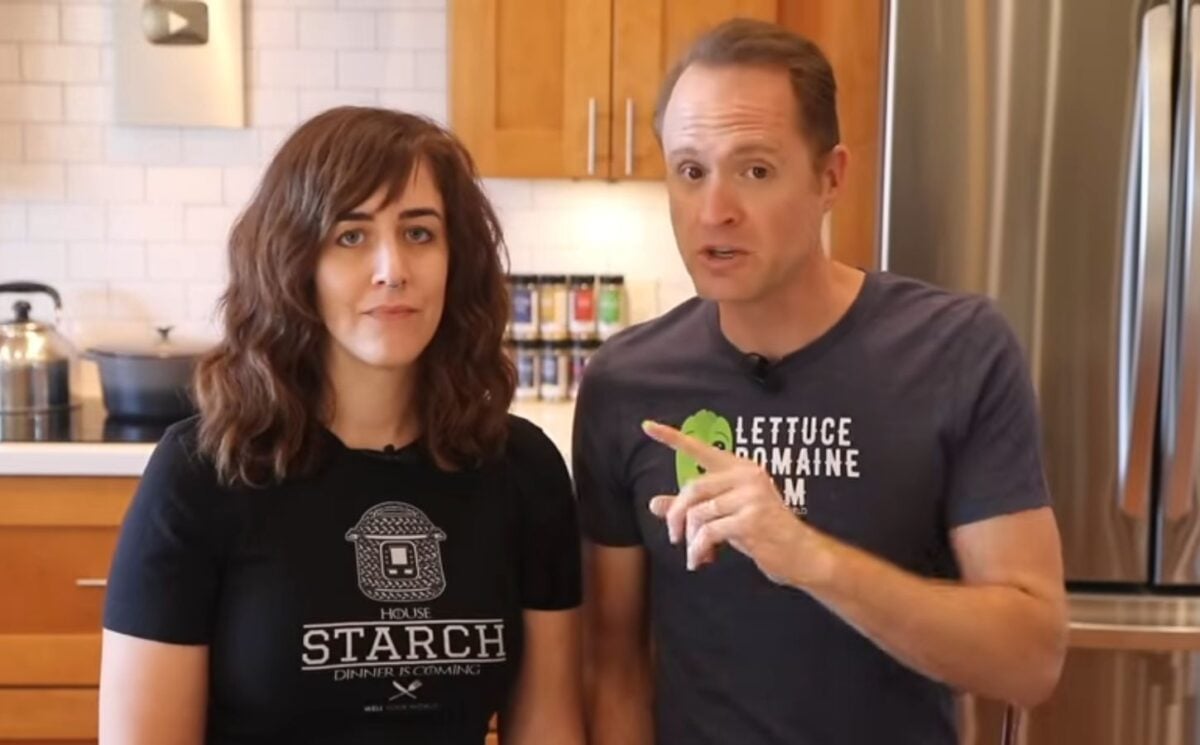From vegoutmag.com
By Avery White
What if the diet you chose for compassion and health is quietly sabotaging your body in ways you haven’t even noticed yet?
I remember the first time someone told me they “tried veganism once and it nearly wrecked their body.”
I was at a local farmer’s market picking up some kale and turmeric root when the topic came up. She said it with the kind of intensity reserved for horror stories. And sure enough, she detailed the fatigue, the hair loss, the “brain fog,” and the “weakness” she blamed squarely on plants.
I smiled politely, but inside I was thinking: it’s a lot more complicated than that.
These kinds of conversations come up more than you’d think—and not just among strangers. Even people I know and respect have whispered their worries about whether their lentil-based life might be slowly draining their vitality.
So let’s talk about it: is a vegan diet actually harming your health?
According to research? Not if you’re doing it right.
But let’s dig a little deeper.
What people often get wrong about “plant-based problems”
It’s tempting to blame a diet switch for every ache, shift in mood, or dip in energy. But the reality is, when people transition to a vegan lifestyle, they sometimes do it with a lack of preparation or nutritional guidance.
As registered dietitian Whitney English puts it, “You can be vegan and eat nothing but Oreos and French fries all day”—emphasizing that removing animal products doesn’t automatically mean eating well.
And that’s the catch. Cutting out animal products doesn’t magically guarantee a healthy diet. You have to be intentional.
And here’s a critical caveat: recent research shows that relying heavily on ultra-processed plant-based alternatives can impair nutritional quality—lowering intake of protein, B‑vitamins, iron, zinc, and calcium—and raise risks of heart disease and early death.
The real issue? Swapping meat and dairy for processed vegan cheeses and fake meats without building balanced meals.
This doesn’t mean plant-based convenience foods are evil—just that if they’re the foundation of your diet, you’re likely missing the micronutrients that support real wellness.
Nutrients worth paying attention to (and easily fixing)
I’ll be honest: there are some nutrients you need to be extra mindful of when you cut out animal products. But “mindful” doesn’t mean “panic.” It just means taking a little time to understand what your body needs—and how to get it from plants (and maybe a supplement or two).
Let’s look at a few of the big ones:
Vitamin B12
This one’s non-negotiable. B12 is crucial for nerve function and red blood cell formation, and it’s not naturally present in plant foods. That said, fortified plant milks, nutritional yeast, and a good-quality B12 supplement have you covered.
Iron
You can get enough iron from plants—lentils, chickpeas, tofu, spinach, pumpkin seeds—but plant-based iron (non-heme) isn’t absorbed as efficiently as the kind found in meat. That’s why it helps to pair iron-rich foods with vitamin C (like lemon juice or bell peppers) to boost absorption.
Omega-3s
You’ve probably heard about these heart-healthy fats, usually linked to fish. But algae oil, flaxseeds, chia seeds, and walnuts are vegan-friendly sources. If you’re not big on those foods, a vegan omega-3 supplement made from algae is a solid backup.
Calcium and Vitamin D
Dairy’s no longer your go-to, but fortified plant milks, leafy greens, tofu, and sunshine (plus a vitamin D supplement in winter) fill the gap nicely.
As noted by the Academy of Nutrition and Dietetics: “Well-planned vegan diets are appropriate for all stages of life... and can provide health benefits for the prevention and treatment of certain diseases.”
In other words, you don’t need animal products to be healthy—you just need a plan.
Why some people feel worse before they feel better
Here’s something that doesn’t get talked about enough: when you first switch to a high-fibre, plant-rich diet, your body needs time to adjust.
More fibre = more fermentation in the gut = more gas and bloating (at first).
If someone jumps from a meat-heavy diet to lentils three times a day, it’s no wonder they feel off.
Gastroenterologist Dr. Will Bulsiewicz explains that bloating is a common sign your gut microbiome is adapting—your microbes are learning to process the new fibre load, and that adjustment phase is actually encouraging.
I’ve seen people mistake this natural transition phase for proof that their body “doesn’t like plants.” But often, it’s the opposite: the body’s recalibrating. The gut microbiome is shifting. It’s actually a good sign—one that things are changing for the better.
The key is to transition gradually. Let your gut build up the right bacterial army to handle all that new fibre and diversity.
The energy slump myth
You’ve probably heard someone say they “just felt tired all the time” on a vegan diet.
In some cases, that’s tied to the nutrients we just talked about—especially B12, iron, and calories.
But here’s something a lot of people don’t factor in: when you cut out animal products, your food tends to be less calorie-dense. That means you might need to eat more to get the same energy output.
If you’re tired and hungry and don’t know why, you may not be eating enough.
I once made that mistake myself while training for a trail race. I was eating lots of veggies, beans, and grains—but I wasn’t eating enough volume. Once I increased my portion sizes and added some nuts and seeds, my energy came back full throttle.
Sometimes it’s not about what you’re eating—but how much of it you’re eating.
So… why does the “veganism is unhealthy” narrative keep popping up?
Let’s be honest: veganism challenges the status quo. And anything that does that will meet resistance.
As Dr. Michael Greger, founder of NutritionFacts.org, has said: “The food industry spends billions convincing us to eat the way we do. The science, on the other hand, has little marketing budget.”
The backlash against veganism isn’t always based in science—it’s often emotional, cultural, or fuelled by misunderstanding.
Plus, it’s easier to blame the “vegan diet” than to admit that maybe your version of it was unbalanced or lacking in variety.
And unfortunately, sensational headlines and clickbait videos don’t help. “Why I Quit Veganism” gets a lot more views than “Why I Took a B12 Supplement and Felt Amazing.”
The research still supports a plant-based life
I’ve read study after study showing the long-term health benefits of a well-planned vegan diet. Lower risk of heart disease, lower cholesterol levels, reduced cancer risk, improved kidney function, and even longevity gains.
A 2024 umbrella review of 49 studies in PLOS ONE confirmed that vegetarian and vegan diets are consistently linked with better outcomes across blood pressure, blood sugar, BMI, and lower risk of ischemic heart disease, certain cancers, and premature death.
That’s not nothing.
And the kicker? Many of those benefits begin when people start reducing their intake of animal products—not just when they cut them out entirely.
A recent Tufts Health & Nutrition Letter explains that substituting some animal-based foods with plant-based sources is associated with lower risks of cardiovascular disease, type 2 diabetes, and mortality.
It’s not about being perfect. It’s about being intentional.
What really matters: are you meeting your body’s needs?
Let’s zoom out for a second.
At the heart of this conversation isn’t whether veganism is inherently good or bad—it’s whether you’re nourishing your body well.
Because any diet—vegan, paleo, keto, omnivore—can be unhealthy if it’s unbalanced, restrictive, or mindlessly followed.
So if you’re already plant-based and feeling amazing, keep going. But check in with yourself once in a while. Are you getting enough B12? Enough iron? Enough variety? If not, tweak. Not quit.
If you’re plant-curious but nervous, start small. Try meatless Mondays. Explore new grains and legumes. Add before you subtract.
As someone who volunteers at a farmer’s market and lives on chickpeas and homegrown greens, I’ve seen the vibrancy that can come from plant-based eating. But it’s not a one-size-fits-all journey. It’s a practice—a learning curve.
And no, it’s not secretly harming your health.
If anything, it might be the invitation your body’s been waiting for.
https://vegoutmag.com/news/z-is-the-vegan-diet-secretly-harming-your-health-heres-what-the-research-says/






